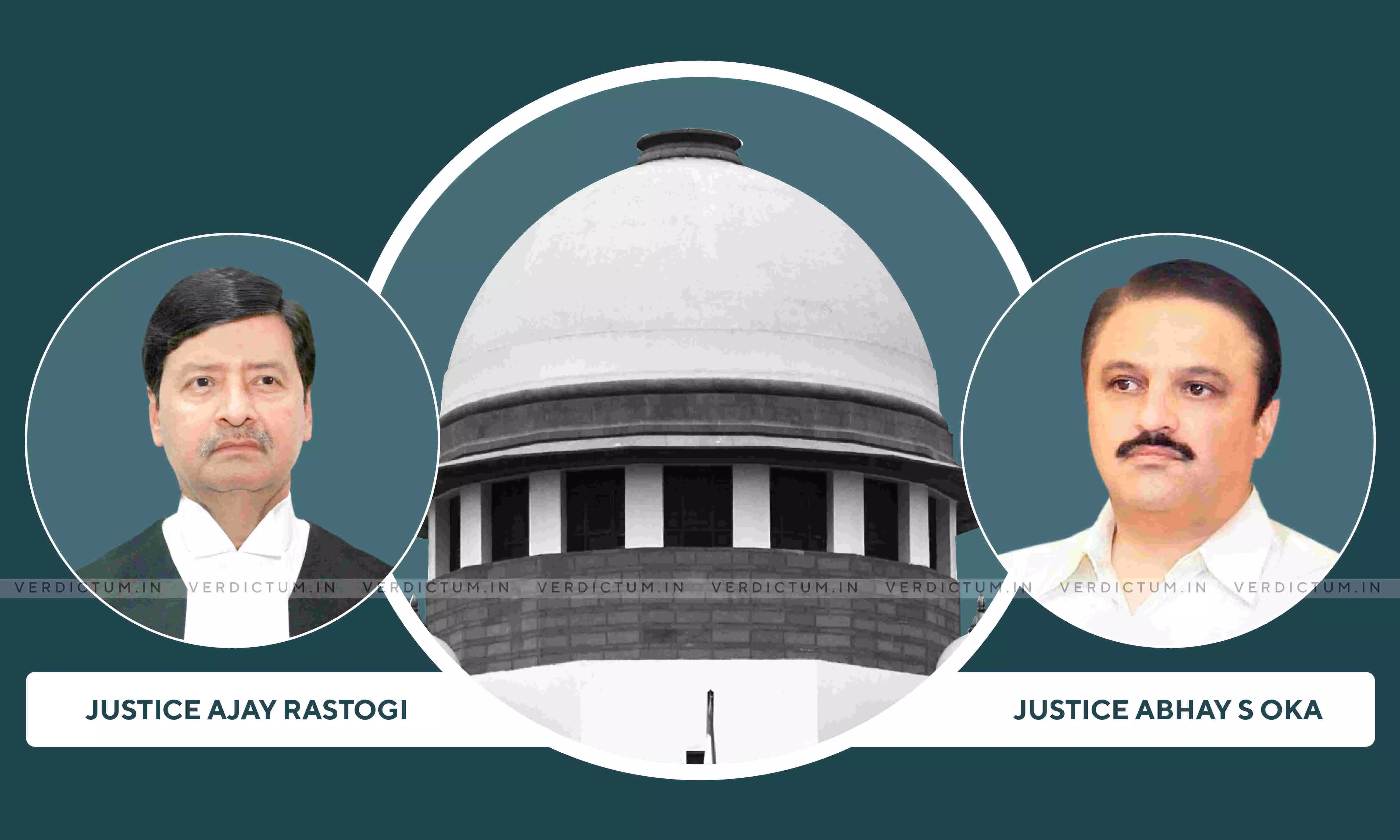
Mere Dispatch Of Public Analyst's Report To Accused Is Not Sufficient Compliance Under Prevention Of Food Adulteration Act – Supreme Court
 |
|A two-judge Bench of Justice Ajay Rastogi and Justice Abhay S. Oka has held that if the report of the Public Analyst is not delivered to the accused, his right under Section 13(2) of the Prevention of Food Adulteration Act of praying for sending the food sample to the Central Food Laboratory would be defeated. This will ultimately lead to his right to defend himself being adversely affected.
An appeal was preferred against the judgment of the High Court which had upheld the order of the Judicial Magistrate First Class convicting Appellant-Accused under Section 16 (1)(a)(i)(ii) of the Prevention of Food Adulteration Act and sentencing him to undergo rigorous imprisonment for six months and to pay fine of Rs.1000/-. In default of payment of fine, he was directed to undergo rigorous imprisonment for one month.
In this case, the Appellant who was selling chana daal had failed to show the food license upon inspection, followed by the report of the Public Analyst which showed that his food product was adulterated.
The Appellant contended before the Court that as mandatorily required by sub-section (2) of Section 13 of the Act, a copy of the report of Public Analyst was not supplied to the appellant, as a result of which, his valuable right to get the samples analyzed by Central Food Laboratory was defeated.
It was further argued that as per the prosecution, a copy of the report was sent to the appellant by registered post, and endorsements made by the Postman showed that a number of attempts were made to serve the letter but the Appellant was not available even after giving intimation and therefore, the letter was returned by the Postman.
While the Respondent contended that a presumption of service of the report was rightly drawn by the High Court.
The Apex Court observed, "If a copy of the report of the Public Analyst is not delivered to the accused, his right under sub-section (2) of Section 13 of praying for sending the sample to the Central Food Laboratory will be defeated."
Relying on the precedent Vijendra v. State of Uttar Pradesh, the Court opined, "Mere dispatch of the report to the accused is not a sufficient compliance with the requirement of subsection (2) of Section 13 and the report must be served on the accused."
The Court noted that the prosecution had not examined the Postman who had made the remarks on the envelope while relying upon his remarks.
Additionally, the Bench asserted, "In the present case, after the postal packet was returned, not even an attempt was made to personally serve the report on the appellant."
The Court held that the finding of refusal on the part of the Appellant as observed by the High Court was erroneous as the endorsements on the postal envelope were not proved by examining the Postman.
"The High Court has glossed over the mandatory requirement under subsection (2) of Section 13 of serving a copy of the report on the accused. Evidence adduced by the prosecution was of mere dispatch of the report. Hence, the mandatory requirement of sub-section (2) of Section 13 was not complied with. Therefore, the conviction and sentence of the appellant cannot be sustained," the Court opined.
In the light of these observations, the Court allowed the appeal and set aside the impugned Judgment and Order of the High Court and also set aside the conviction of the Appellant.